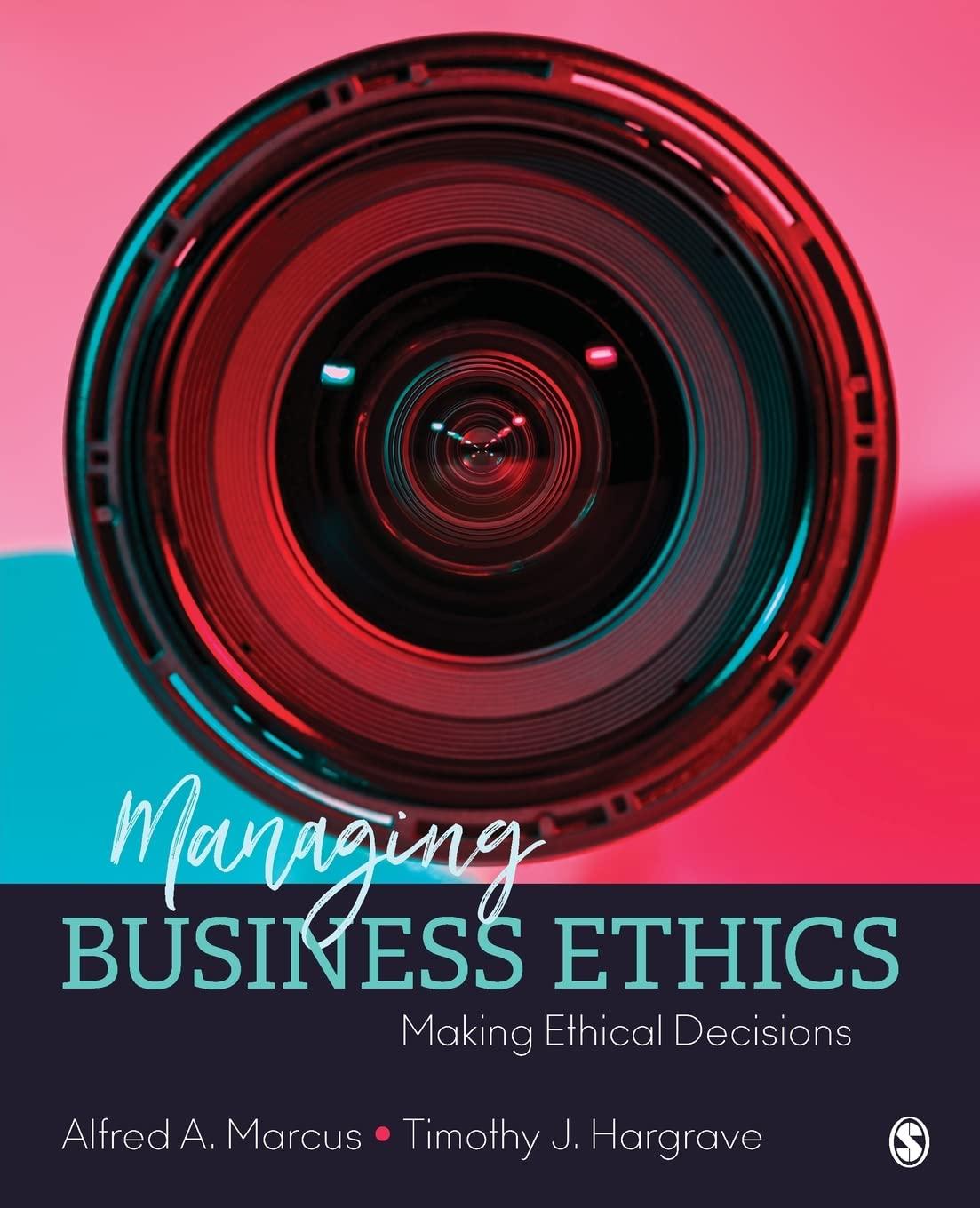The two classes of sexual harassment defined under the Equal Employment Opportunity Commission guidelines are (1) requests
Question:
The two classes of sexual harassment defined under the Equal Employment Opportunity Commission guidelines are (1) requests by a supervisor for sexual favors in return for job benefits and (2) a hostile work environment. Sexually harassing conduct in the workplace that creates an offensive work environment includes the following: physical or verbal harassment; repeated offensive or unwelcome sexual flirtations, advances, and propositions; continual or repeated verbal abuse of a sexual nature; graphic verbal commentaries about an individual’s body; the use of sexually degrading words to describe an individual; and the display in the workplace of sexually suggestive objects or pictures. Since there are usually neither witnesses nor physical evidence, and it is difficult to show that advances were not wanted, fact-finding can be complicated, and it is important to know whether the victim told the accused person that the advances were not welcome. Barteau Weber of Atlantic Information Systems, last seen in Case 3.1 of this chapter, now faces a series of sexual harassment cases. To what extent can he use the weight-of-reasons framework to help manage these dilemmas? Again, be sure to compare your decision based on the weight of reasons with your initial intuitions.
a. The Business Trip
Three people from Atlantic go on a business trip. The male partner is in his mid-40s and is married. The third-year analyst is in her early 30s, and the newly hired MBA is in her mid-20s. The business trip is a success; the employees secure a new project that will bring millions of dollars of business. That evening they celebrate. The male partner has too much to drink and asks questions about the female analyst’s sex life. He moves closer to her and puts his arm around her. She is visibly shaken. She moves away from the male partner, reminding him that she has just become engaged, and tries to change the subject. The newly hired MBA is upset about what she has witnessed. The next day, she urges the analyst to file a complaint, but the analyst refuses. She says that the male partner is simply having a midlife crisis: “That’s the way it is. I don’t want to be branded a troublemaker.” On her own, the MBA brings the incident to the attention of the human resources department. It makes some discreet inquiries and learns that the partner in the firm has a reputation for occasional heavy drinking and, apparently, has had consensual affairs with other junior employees. However, no one has ever brought a formal complaint against him. The human resources staff tell the MBA she cannot file a formal complaint herself but must convince the analyst to do
b. No Touching
Atlantic Information Systems has an explicit policy of “no sexual touching” between employees. Helen, a member of John’s staff, has received poor performance reviews, but nonetheless she believes she should be promoted. She files a letter of complaint with the human resources department, alleging that John embraced his secretary Emily on company property. The department begins an investigation by interviewing people in the company. It asks them for complete confidentiality, but leaks occur, and word of the inquiry spreads, hurting the reputations of both John and Emily and making it difficult for them to carry out their jobs. Their department is at a standstill with bitterness and acrimony on all sides. Helen complains that other employees are siding with John and Emily and that she is being ostracized. Emily’s story is that she received a phone call about her niece’s death in an automobile accident and that John was only comforting her.
c. “Boys Will Be Boys.”
After having lunch with a customer, a salesperson claims that the customer made unwelcome offensive comments followed by physical contact to which she objected. She expects her company to take immediate legal action. If it fails to protect her, she will sue. When confronted, the customer claims that “boys will be boys” and that what happened was “nothing more than a joke,” an “innocent flirtation,” and perhaps a “chance for a relationship.” This customer represents an organization that constitutes one quarter of the company’s business. The company discovers that this salesperson complained many times of sexual harassment in her previous employment.
Step by Step Answer:

Managing Business Ethics Making Ethical Decisions
ISBN: 9781506388595
1st Edition
Authors: Alfred A. Marcus, Timothy J. Hargrave





